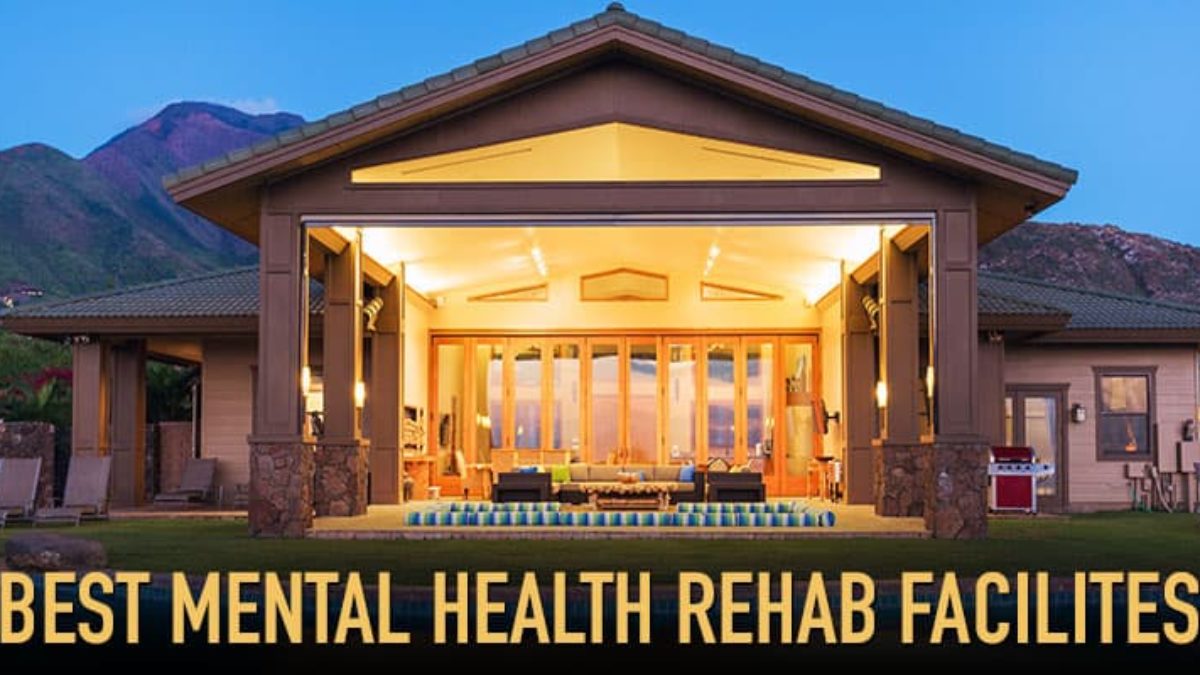Finding Hope and Healing at a Mental Health Rehab Center:
Life can sometimes feel overwhelming. We all go through tough times, but when emotional struggles become too heavy to carry alone, it’s okay to ask for help. That’s where professional care makes a big difference. A Mental Health Rehab Center is a place designed to help individuals heal mentally, emotionally, and sometimes even physically. These centers provide a safe and caring space for people who are facing mental health challenges.
Mental health is just as important as physical health. When our mind is not well, everything in life becomes more difficult. Things like work, school, relationships, and even everyday tasks can feel impossible. But healing is always possible with the right support and treatment. That’s the goal of a rehab center focused on mental health — to guide people back to a healthier and happier version of themselves.
A Place to Recover and Grow
A Mental Health Rehab Center offers more than just treatment. It offers a journey of self-discovery and recovery. Many people enter these centers feeling lost, scared, or hopeless. But over time, they begin to find strength they didn’t know they had. This is because these centers are carefully designed to support healing. Every part of the program is focused on helping people regain control of their lives.
Most rehab centers begin by creating a personal care plan. This means doctors and therapists work closely with each individual to understand their unique needs. Not everyone experiences mental illness the same way. For some, it might be anxiety or depression. For others, it could be bipolar disorder, trauma, or other conditions. A good center does not treat everyone the same. Instead, they focus on what each person needs most to get better.
A Team That Cares
Behind every successful recovery story is a team of caring professionals. A Mental Health Rehab Center is filled with people who have dedicated their lives to helping others. This includes psychologists, psychiatrists, nurses, therapists, counselors, and even support staff. They work together to provide a complete system of care.
Therapists help patients explore their thoughts and feelings in a safe space. Psychiatrists may prescribe medication if needed, to help stabilize emotions. Group sessions allow people to share their experiences and realize they are not alone. These group settings often build strong friendships that continue even after treatment ends.
In addition to traditional therapy, many centers offer activities that help heal the mind in different ways. These may include yoga, art therapy, music, journaling, mindfulness, and even pet therapy. All of these approaches work together to bring balance and peace back into a person’s life.
What Happens Inside the Center?
Many people are unsure of what to expect when they hear the words “rehab center.” The idea might seem scary or uncomfortable at first, but the reality is often very different. A Mental Health Rehab Center is not a place of punishment. It’s a place of healing. It’s peaceful, calm, and full of people who truly care.
Upon arrival, new clients are welcomed with respect and kindness. The staff works to make everyone feel safe and comfortable. After some initial evaluations, a treatment plan is created. Each day usually includes a mix of therapy sessions, personal reflection time, group meetings, meals, and rest. Healthy routines are encouraged, such as regular sleep, good nutrition, and physical activity.
Privacy and dignity are always respected. The goal is to help people rebuild their strength step by step, without pressure. The environment is designed to reduce stress and promote mental clarity.
Benefits of Going to a Rehab Center
One of the biggest benefits of entering a professional center is getting away from daily stress. Sometimes, the outside world makes it hard to focus on healing. A rehab center removes distractions and gives people the time they need to really work on themselves.
Another key benefit is support. Many people feel alone in their struggles. In a center, they meet others who understand exactly what they’re going through. This shared experience helps reduce shame and builds hope.
Learning new skills is also a big part of recovery. Clients learn how to manage stress, communicate better, deal with negative thoughts, and cope in healthy ways. These tools are useful not just during treatment, but for the rest of their lives.
A New Chapter Begins
Leaving a rehab center is not the end of the journey — it’s a new beginning. After care is often provided to help people adjust to life outside. This might include regular therapy sessions, group meetings, or check-ins with counselors. The goal is to help people stay on track and continue their growth.
It’s important to understand that mental health recovery is not a straight line. There may be ups and downs, but the skills learned at the center help people handle life more confidently. Progress may be slow at times, but every step forward is a victory.
Families and friends often play an important role in the recovery process. Many centers include family therapy or support sessions to help loved ones understand what their friend or family member is going through. With love and understanding, families can help create a strong foundation for long-term success.
Who Should Consider This Option?
Anyone who is struggling with their mental health and feels they are not coping well on their own might benefit from this kind of support. This could include people dealing with:
- Severe anxiety or depression
- Trauma or PTSD
- Eating disorders
- Substance abuse combined with mental health issues
- Mood disorders such as bipolar disorder
- Suicidal thoughts or self-harming behavior
If daily life feels like a struggle and nothing seems to help, it might be time to look into a Mental Health Rehab Center. There is no shame in getting help. In fact, it takes a lot of courage to admit you need support. Choosing to seek treatment is a powerful first step toward a better future.
Final Thoughts
Mental health challenges can happen to anyone. They do not mean someone is weak or broken. They mean a person is human and in need of care. A Mental Health Rehab Center exists to provide that care in a compassionate and professional way.
If you or someone you know is suffering silently, remember that hope and healing are possible. With the right support, people can and do recover. They rediscover joy, purpose, and peace of mind. Life can feel bright again.No matter how dark things may seem right now, there is always a path forward. A new chapter is waiting — all it takes is one brave step.
Frequently Asked Questions (FAQs)
1. Who is a Mental Health Rehab Center for?
A Mental Health Rehab Center is for anyone whose emotional or psychological struggles are making it difficult to function in daily life. This includes individuals dealing with severe anxiety, depression, bipolar disorder, trauma (PTSD), eating disorders, co-occurring substance abuse issues, or those experiencing suicidal thoughts. If your mental health is significantly impacting your work, relationships, or overall well-being, such a center could be a beneficial option.
2. What’s the difference between a rehab center and just seeing a therapist?
While outpatient therapy is an excellent form of support, a rehab center provides a more intensive, immersive, and structured level of care. It offers a safe, 24/7 supportive environment away from daily stressors, allowing you to focus entirely on your recovery. It combines multiple therapies—individual, group, experiential (like art or yoga)—alongside psychiatric care and life skills training in a coordinated program.
3. Is going to a rehab center like being in a hospital?
The environment in most modern Mental Health Rehab Centers is designed to be peaceful, comfortable, and homelike rather than a clinical hospital setting. While it provides a secure and structured space for healing, the focus is on therapy, community, and building healthy routines in a calm and supportive atmosphere.
4. How long does treatment typically last?
The length of stay varies significantly depending on the individual’s unique needs and treatment plan. Some programs may last 30 days, while others may be 60 or 90 days. The treatment team will work with you to determine the most effective duration for your recovery journey.
5. What happens after I leave the center? Is the support over?
No, the support does not end when you leave. A crucial part of the process is creating a detailed aftercare plan. This plan is designed to support your transition back to daily life and may include arrangements for ongoing outpatient therapy, support group meetings, medication management, and regular check-ins to help you maintain your progress and handle future challenges.





